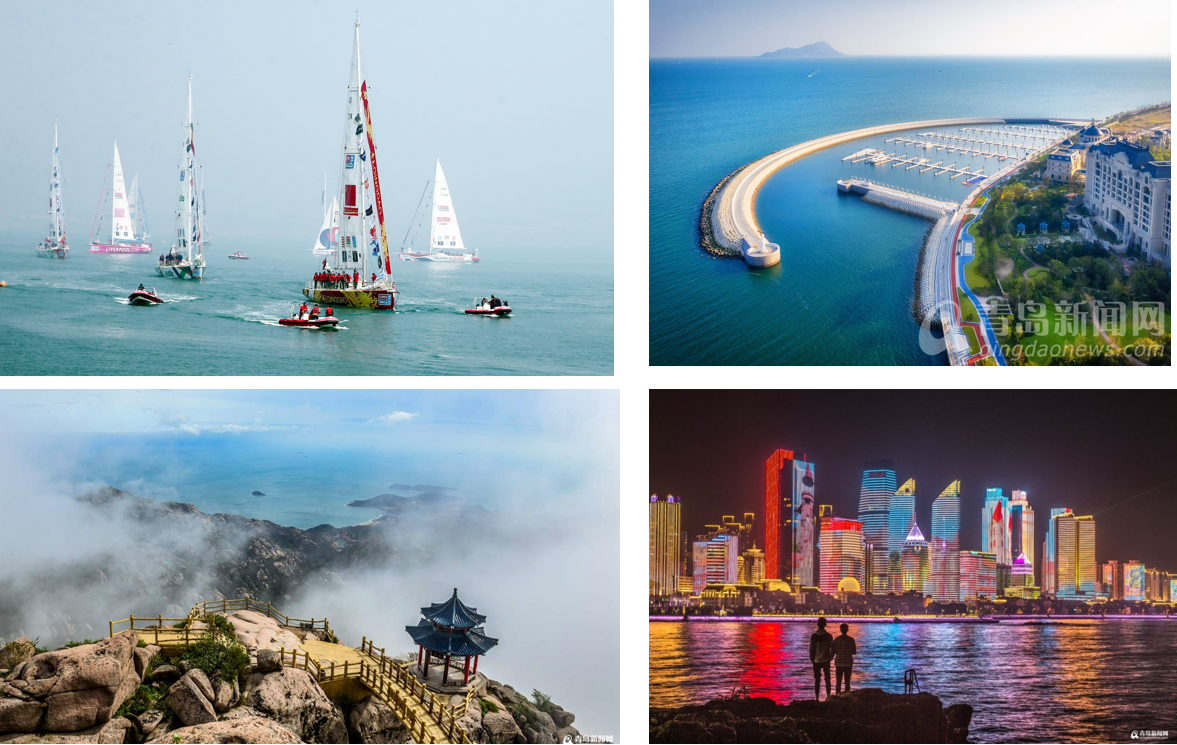Qingdao (formerly spelled Tsingtao) is a
city on the west shore of the Pacific Ocean. Lying on the southern coast of
China's Shandong Peninsula, the city faces the Yellow Sea to the south and cast,
and borders inland areas of Shandong Province to the north and west.
Qingdao has a land area of 1282 square
kilometers, a sea area of 2240 square kilometers, and a total population of 9.4
million. It has over seven districts, i.e. Shinan, Shibei, Licang, Laoshan, Huangdao, Chengyang and Jimo, and
three county-level cities of Jiaozhou, Pingdu and Laixi.
Qingdao is steeped in rich historical and
cultural heritage and is widely recognized as a cradle of Taoism. The earliest
human settlement in Qingdao can be traced back to as early as 5000 to 6000
years ago. Two of its precincts are included on China’s official list of
“Renowned Streets of Cultural and Historical Significance”. Qingdao has 16
historical sites or monuments recognized by the cultural heritage
administration authority at the national, provincial or municipal level. It has
been selected as one of the “Culture Cities of East Asia”.
Qingdao is one of China's first coastal
cities opening to the outside world. As of today, the city has established
sister-city relations or friendly-cooperative-city relations with 76 cities of
other countries. More than 2000 international trading companies, businesses and
financial institutions have opened permanent branches or offices in the city.
In 2018, Qingdao's imports and exports totaled 532.13 billion RMB, and the
paid-in foreign direct investment rose to 8.69 billion US dollars.
Qingdao is one of China's regional economic
centers, one of China's top five seaports for international trade, and a
maritime transportation hub. In 2018, its gross domestic product exceeded 1.2
trillion RMB and its public budgetary revenues amounted to 123.19 billion RMB.
Qingdao is one of the well-known tourist
destinations in China. lt has a 905.2 kilometer coastline
dotted with 49 bays and 6 islets. Its indented coastline, temperate monsoon
climate and headland-bay beaches are ideal for holiday, sightseeing, and for
meetings, incentives, conferences and exhibitions.
Over 100 exhibitions and conventions are
held in Qingdao each year, including the Qingdao International Beer Festival
and China International Consumer Electronics Show. In 2018, the city received
100 million visitors from home and abroad.
Welcome to Qingdao.




